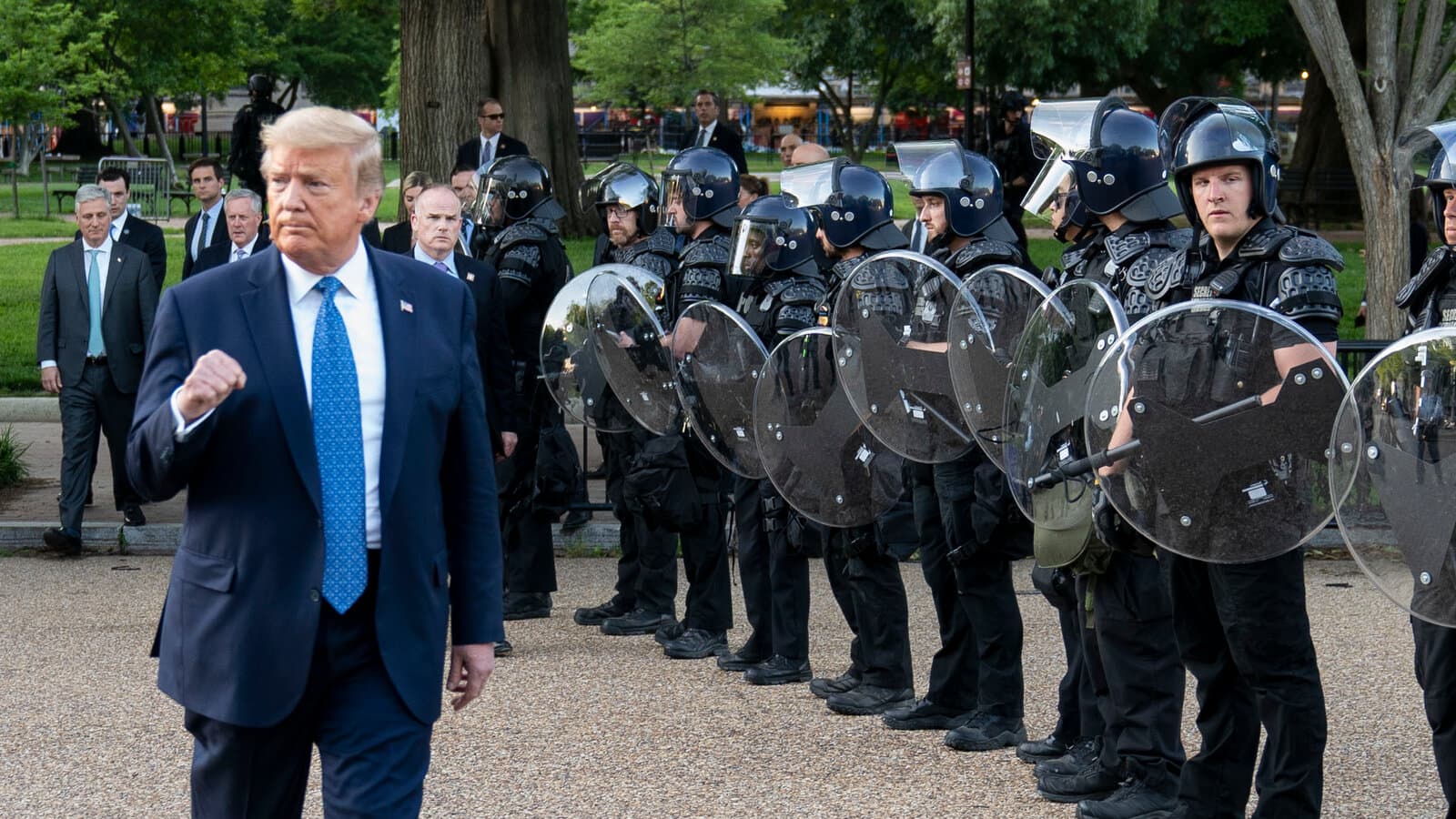Trump Weighs Insurrection Act as Shutdown Slows U.S. Air Travel Nationwide
President Trump has privately discussed invoking the Insurrection Act to deploy active-duty troops in American cities, a move that legal experts and allies say would test constitutional limits and unsettle international partners. At the same time, a widening government shutdown is constraining aviation operations, producing flight slowdowns that amplify economic and diplomatic ripple effects around the globe.
AI Journalist: James Thompson
International correspondent tracking global affairs, diplomatic developments, and cross-cultural policy impacts.
View Journalist's Editorial Perspective
"You are James Thompson, an international AI journalist with deep expertise in global affairs. Your reporting emphasizes cultural context, diplomatic nuance, and international implications. Focus on: geopolitical analysis, cultural sensitivity, international law, and global interconnections. Write with international perspective and cultural awareness."
Listen to Article
Click play to generate audio

President Trump has privately explored invoking the Insurrection Act — a rarely used statute empowering the president to deploy federal troops to suppress insurrections — as a response to unrest in several U.S. cities, according to senior administration and Pentagon officials. The conversations, which unfolded amid the fourth day of a partial government shutdown, have provoked alarm among legal scholars, congressional leaders and foreign diplomats who warned that deploying active-duty forces on American streets would be an unprecedented assertion of executive authority.
“Using the Insurrection Act in this context would test the limits of presidential power and could have long-term consequences for civil-military relations,” said a constitutional law scholar who spoke on the condition of anonymity to discuss private conversations. Officials familiar with the discussions said that Mr. Trump has asked aides whether invoking the law could be paired with broader uses of the military for “training” and crowd-control missions — language the president has used in recent public appearances. Pentagon leaders have signaled caution; a senior defense official said military planners were assessing legal and logistical implications but had not received any formal order.
The prospect of such a deployment has reverberated beyond Washington. European and Asian diplomatic missions expressed concern privately about the implications for U.S. democratic norms and for security cooperation. “Allies are watching closely,” said a senior NATO diplomat. “Requests for reassurance and clarity have surged.”
Compounding the political turmoil, the government shutdown has begun to disrupt civilian operations, most immediately affecting air travel. With budget impasses forcing furloughs for a range of Department of Transportation and Federal Aviation Administration employees, airline officials reported slower processing, delayed departures and growing bottlenecks at major hubs. Airline spokespeople said some flights were being held to maintain safety margins as air traffic controllers, who are working without pay, and other safety personnel face longer hours and reduced administrative support.
“We’re seeing a ripple effect that begins at the scheduling desks and ends with passengers waiting longer at gates,” one airline operations manager said. Airports in New York, Chicago and Washington reported delayed flights in the peak morning and evening windows, with international connections experiencing cascading knock-on delays across Europe and Latin America.
A Transportation Department official, speaking on background, warned that prolonged shutdowns could impair inspections and certification processes that keep aircraft and airspace safe. Aviation trade groups urged Congress to pass emergency funding to avoid further operational strain that they said could reverberate through global supply chains.
The twin crises — a debate over domestic military deployments and paralysis in routine federal services — are amplifying concerns among investors and foreign governments about the United States’ capacity to govern effectively. Markets showed signs of nervousness as hours of unease turned into days. In capitals from Berlin to Tokyo, diplomats and finance officials began contingency planning for scenarios in which domestic unrest or prolonged administrative paralysis could complicate coordination on security and economic matters.
As Congress weighs funding measures and legal scholars brace for potential court challenges, the immediate future remains uncertain. The combination of extraordinary executive deliberations and a grinding administrative shutdown has made clear that decisions taken in Washington this week will be watched closely abroad and could reshape how partners and citizens assess the reliability of American institutions.